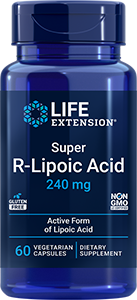| In the early stages of type 2 diabetes, insulin levels are already elevated (hyperinsulinemia). This is because the problem isn’t with insulin production; rather, the underlying defect in type 2 diabetes is a metabolic defect of insulin utilization. The delicate insulin receptors on cell membranes are less responsive to the insulin than are the insulin receptors of people without type 2 diabetes, which means that less glucose is absorbed from the blood stream than would be normally, and glucose levels slowly rise. This elevation in glucose upsets the body’s natural balance, prompting the pancreas to discharge copious amounts of insulin to normalize glucose levels. This short-term, biological fix successfully drives glucose into cells, thereby lowering blood glucose levels, but it also hastens the disease’s progress. Eventually, the fragile insulin receptors become less sensitive (insulin resistant), which means that the pancreas must secrete even more insulin to keep clearing the blood of glucose. In later stages of the disease, the pancreas becomes “burned out” and can no longer produce adequate insulin. Insulin levels drop far below normal, allowing blood glucose to rise even higher and inflict greater damage. In human experiments, omega-3 fatty acids lowered blood pressure and triglyceride levels, thereby relieving many of the complications associated with diabetes. In animals, omega-3 fatty acids cause less weight gain than other fats do; they have also been shown to have a neutral effect on LDL, while raising HDL and lowering triglycerides (Petersen M et al 2002). Marine oil contains omega-3 fatty acids. The research on omega-3 fatty acids stems from studies of the Inuit (Eskimo) people, who seldom suffer from heart attacks even though their diets contain an enormous amount of fat from fish, seals, and whales, presumably because those sources of fat are very high in omega-3 fatty acids. Omega-3 fatty acids found in marine oil lower blood triglyceride levels, contribute to “thinning” the blood, and also decrease inflammation (Ebbesson SO et al 2005). These effects partially explain many of fish oil’s benefits. | The Future of Medicine Cruise October 10-17, 2010
New York to Bahamas 
Sponsors:
Appignani Bioethics Center
Institute for Ethics and Emerging Technologies Topics:
1. (Oct 11) Michael West, PhD Extending healthy lifespans: Is aging a disease?
2. (Oct 15) Paul Kurtz, PhD Personalizing diagnosis and treatments: Tailored medicine for your genetic makeup
3. (Oct 16) Martha J. Farah, PhD Building a better brain: Can we become smarter, happier people? Each topic will be the focus of one full day on the cruise while at sea. The curriculum will also include films and discussions of future medicine topics. *There will not be educational programming while docked in the Bahamas. Don’t miss out! To book your trip, call Rodney Scannell at 1-877-436-9722, ext. 7009 or by e-mail at rscannell@ncl.com. Be sure to mention the “ABC Future of Medicine” group! https://www.lifeextension.com/event. |

















